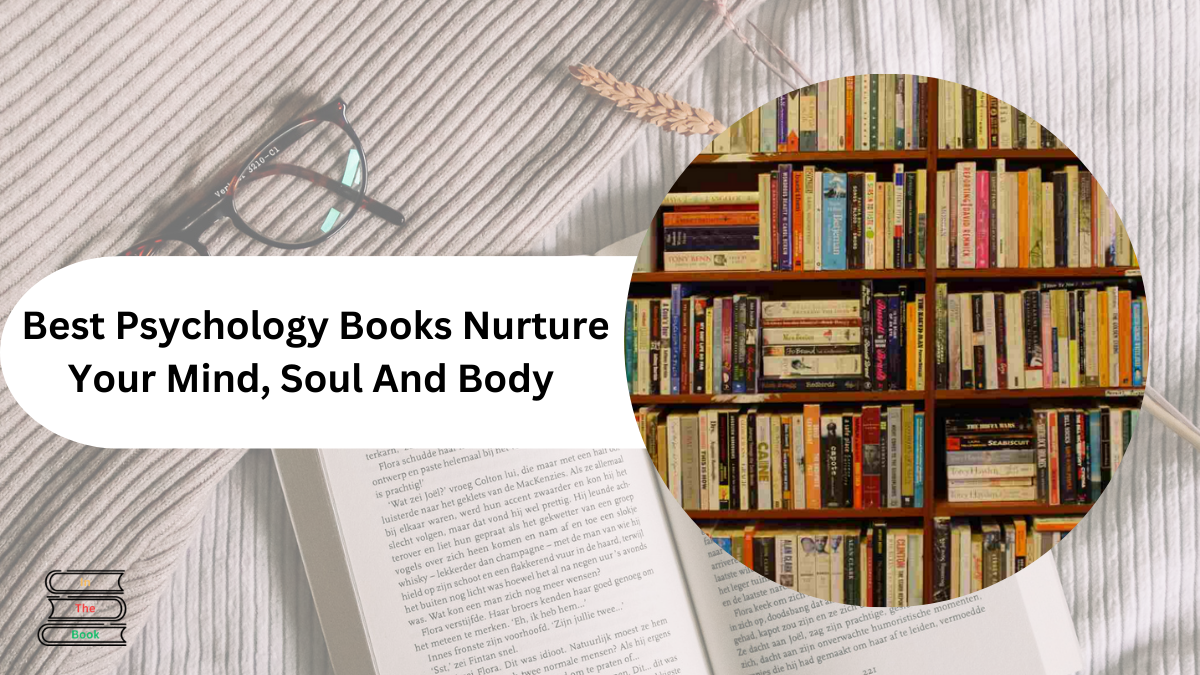Psychology offers profound insights into human behaviour, relationships, and self-awareness. Several books stand out for their ability to nurture the intellect and emotional and spiritual well-being. Here are some essential reads that explore these dimensions.

Contents
- Best Psychology Books
- 1. Thinking, Fast and Slow by Daniel Kahneman
- 2. The Power of Habit by Charles Duhigg
- 3. Predictably Irrational by Dan Ariely
- 4. Blink: The Power of Thinking Without Thinking by Malcolm Gladwell
- 5. Emotional Intelligence by Daniel Goleman
- 6. The Power of Source by Lauren Roxburgh
- 7. The Power of Now by Eckhart Tolle
Best Psychology Books
The books listed below provide transformative insights, allowing readers to deepen their self-awareness and enhance their overall well-being.
1. Thinking, Fast and Slow by Daniel Kahneman
Kahneman explores the dual systems of thought: the fast, intuitive System 1 and the slow, deliberative System 2. He explains how these systems shape our judgments and decision-making processes, often leading to cognitive biases. By understanding these mechanisms, readers can improve their decision-making and critical-thinking skills. The book combines psychology and behavioural economics, providing insights into human behaviour, the nature of happiness, and the impact of biases on our lives. Ultimately, it encourages greater awareness of our thought processes, fostering more rational decision-making.
2. The Power of Habit by Charles Duhigg
Duhigg delves into the science of habit formation, explaining how habits work and how they can be changed. He outlines the habit loop through engaging stories and research: cue, routine, and reward. By understanding this loop, individuals can break bad habits and cultivate positive ones. The book also examines how organizations leverage habits for success, offering insights into the power of collective behaviour. Duhigg emphasizes that awareness is the first step to change, empowering readers to reshape their habits and improve their lives.
3. Predictably Irrational by Dan Ariely
Ariely challenges the assumption of rational decision-making, revealing the systematic ways people behave irrationally. He explores how emotions, expectations, and social norms influence our choices through engaging experiments. The book highlights various irrational behaviours, such as procrastination, overvaluing free items, and the impact of relativity on decision-making. Ariely argues that understanding these patterns can help us make better decisions in our personal and professional lives. Ultimately, the book encourages readers to recognize the predictable nature of their irrational behaviours and offers strategies to mitigate their effects.
4. Blink: The Power of Thinking Without Thinking by Malcolm Gladwell
In Blink, Gladwell examines the power of snap judgments and the subconscious processes behind them. He argues that quick decisions can be as effective as well-considered ones, highlighting the importance of intuition. Through fascinating case studies, he illustrates how first impressions, gut feelings, and automatic responses shape our perceptions and actions. However, Gladwell also warns of the pitfalls of relying too heavily on intuition, emphasizing the need to balance instinct and analysis. This book challenges readers to rethink how they approach decision-making in everyday life.
5. Emotional Intelligence by Daniel Goleman
Goleman’s work introduces the concept of emotional intelligence (EQ) and its significance in personal and professional success. He defines EQ as recognizing, understanding, and managing emotions in oneself and others. Goleman argues that EQ is as crucial as IQ in determining success, influencing relationships, communication, and leadership. The book discusses the components of emotional intelligence—self-awareness, self-regulation, motivation, empathy, and social skills—and provides practical strategies for enhancing these skills. Ultimately, Goleman emphasizes the transformative power of emotional intelligence in achieving fulfilment and effective interactions.
6. The Power of Source by Lauren Roxburgh
Lauren Roxburgh’Roxburgh’sr of Source emphasizes the connection between the body, mind, and spirit, offering tools for personal empowerment and holistic health. Through movement practices, breathwork, and mindfulness, Roxburgh guides readers in tapping into their inner strength and intuition. The book explores aligning physical well-being with emotional and spiritual growth, encouraging readers to develop a deeper awareness of their bodies. Roxburgh’Roxburgh’s promotes self-care and holistic healing, helping individuals reconnect with their authentic selves and foster a more balanced, fulfilling life.
7. The Power of Now by Eckhart Tolle
In The Power of Now, Tolle emphasizes the importance of living in the present moment as a pathway to spiritual enlightenment. He explains how the mind often distracts us with regrets about the past and anxieties about the future, leading to unhappiness. Through mindfulness practices and meditation, Tolle encourages readers to embrace the present, fostering inner peace and self-awareness. The book offers practical guidance on overcoming negative thought patterns and cultivating a deeper connection with oneself. Ultimately, Tolle advocates for awakening to the beauty of the now, transforming one’s life’s presence and acceptance.

Ross, an exam specialist with a passion for education, writes comprehensive articles on exam results and admit cards. His expertise ensures students receive reliable information and useful tips to excel in their exams.


























